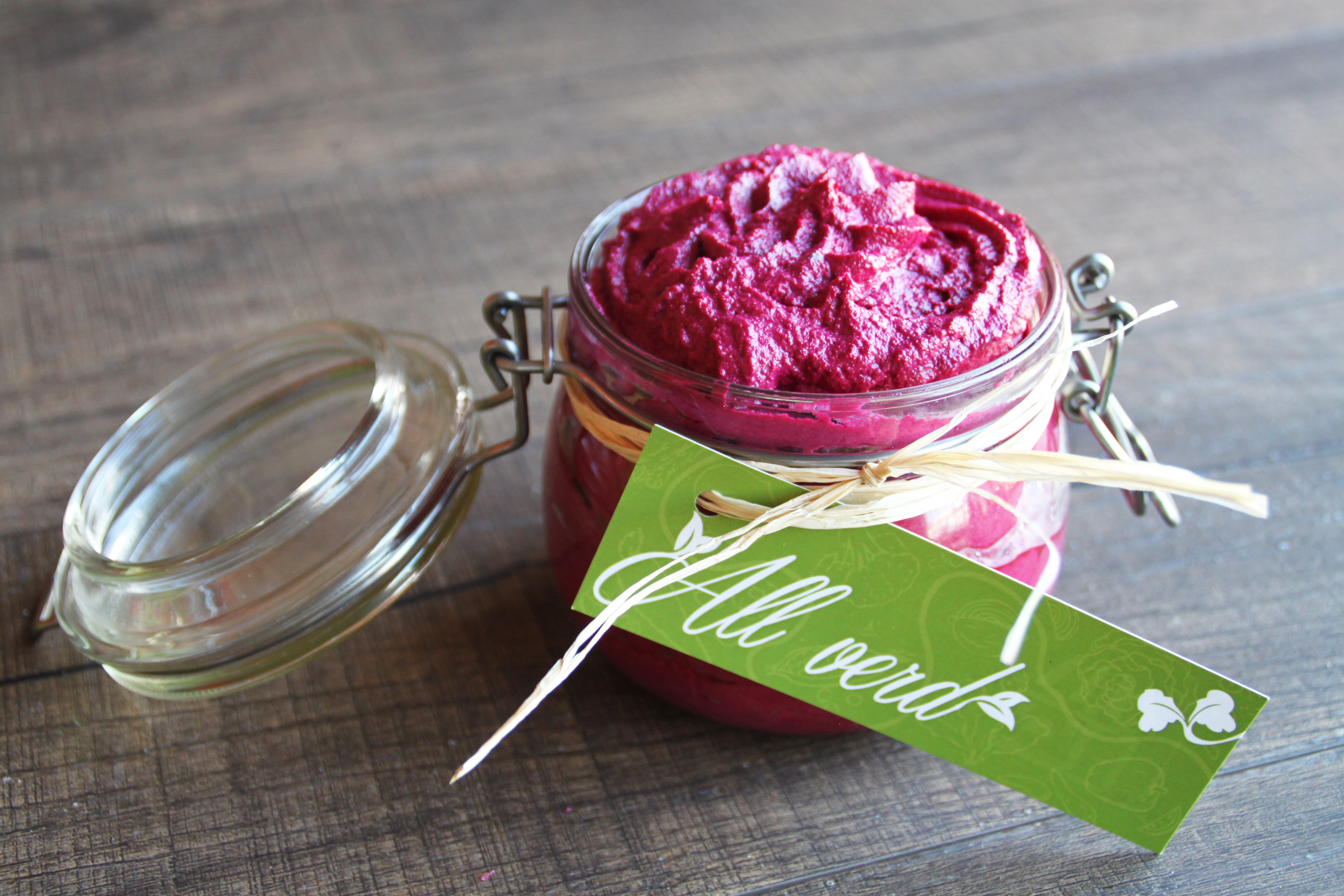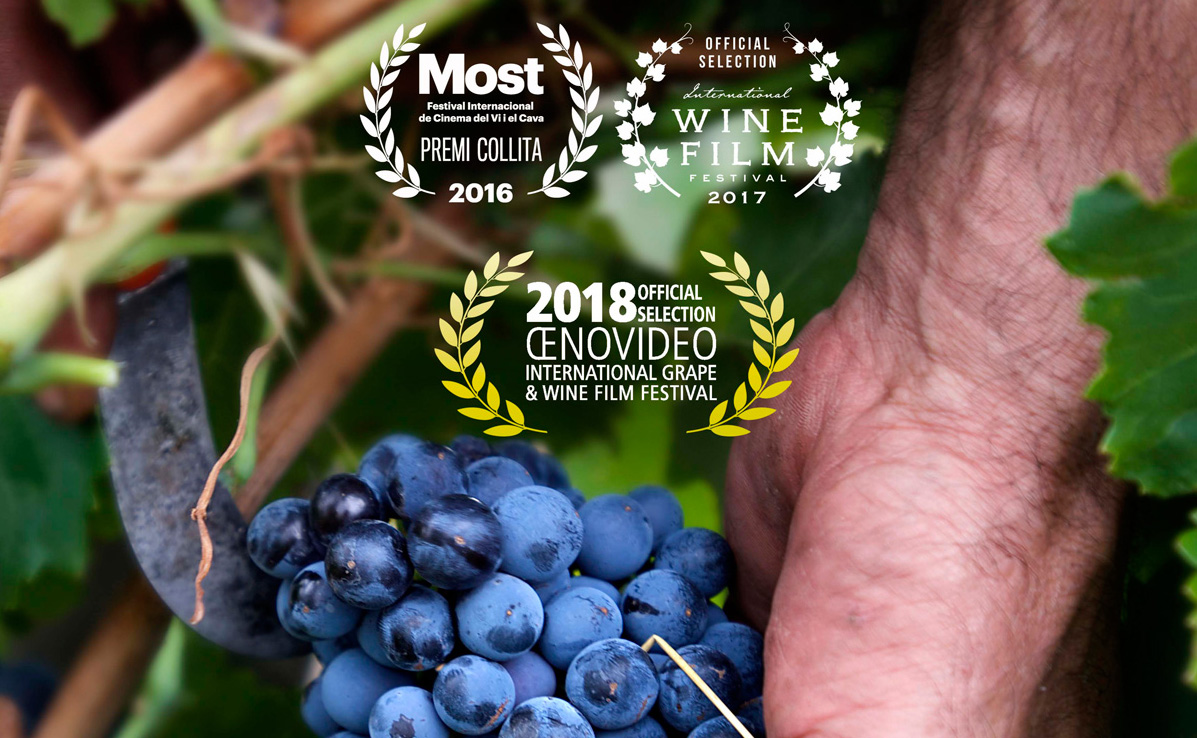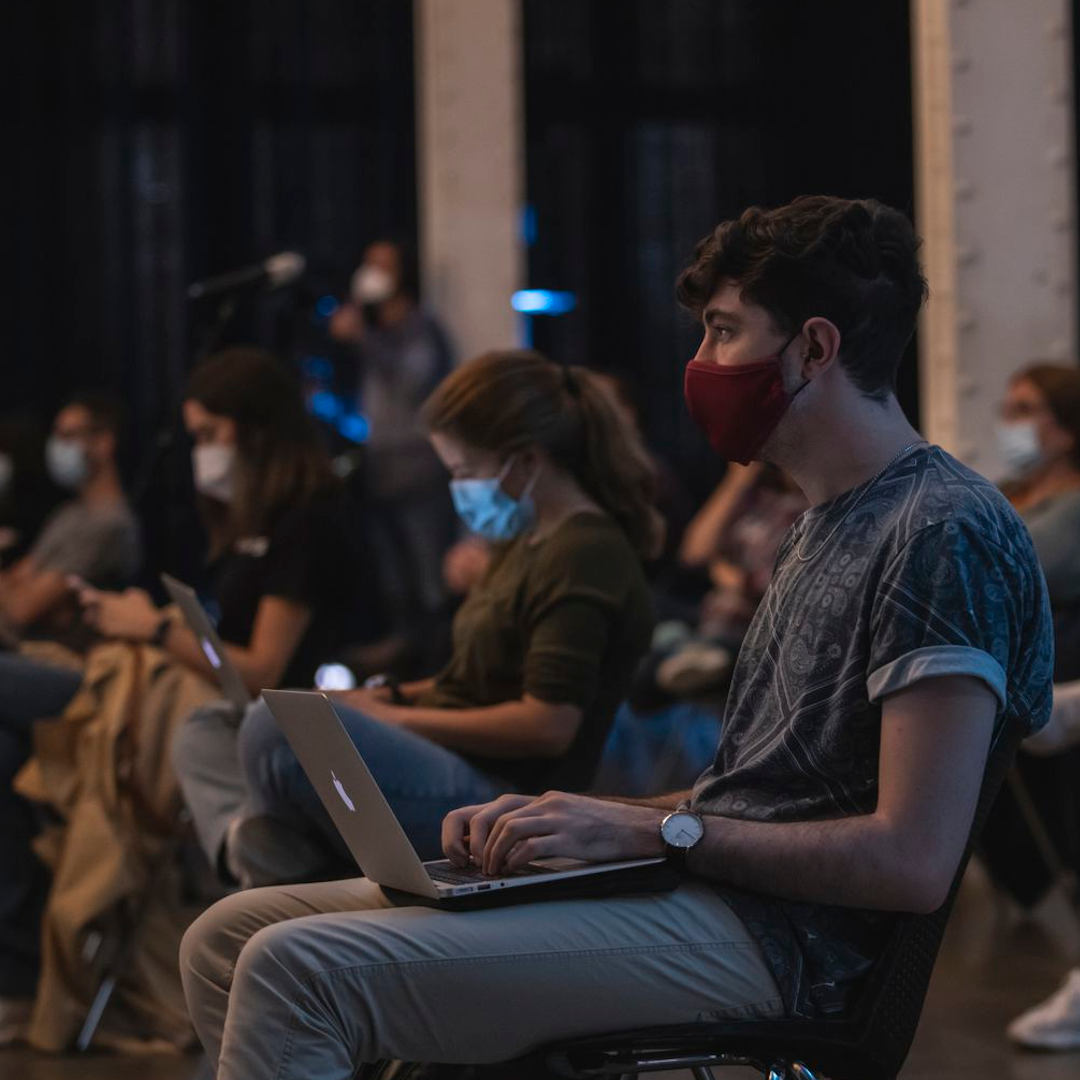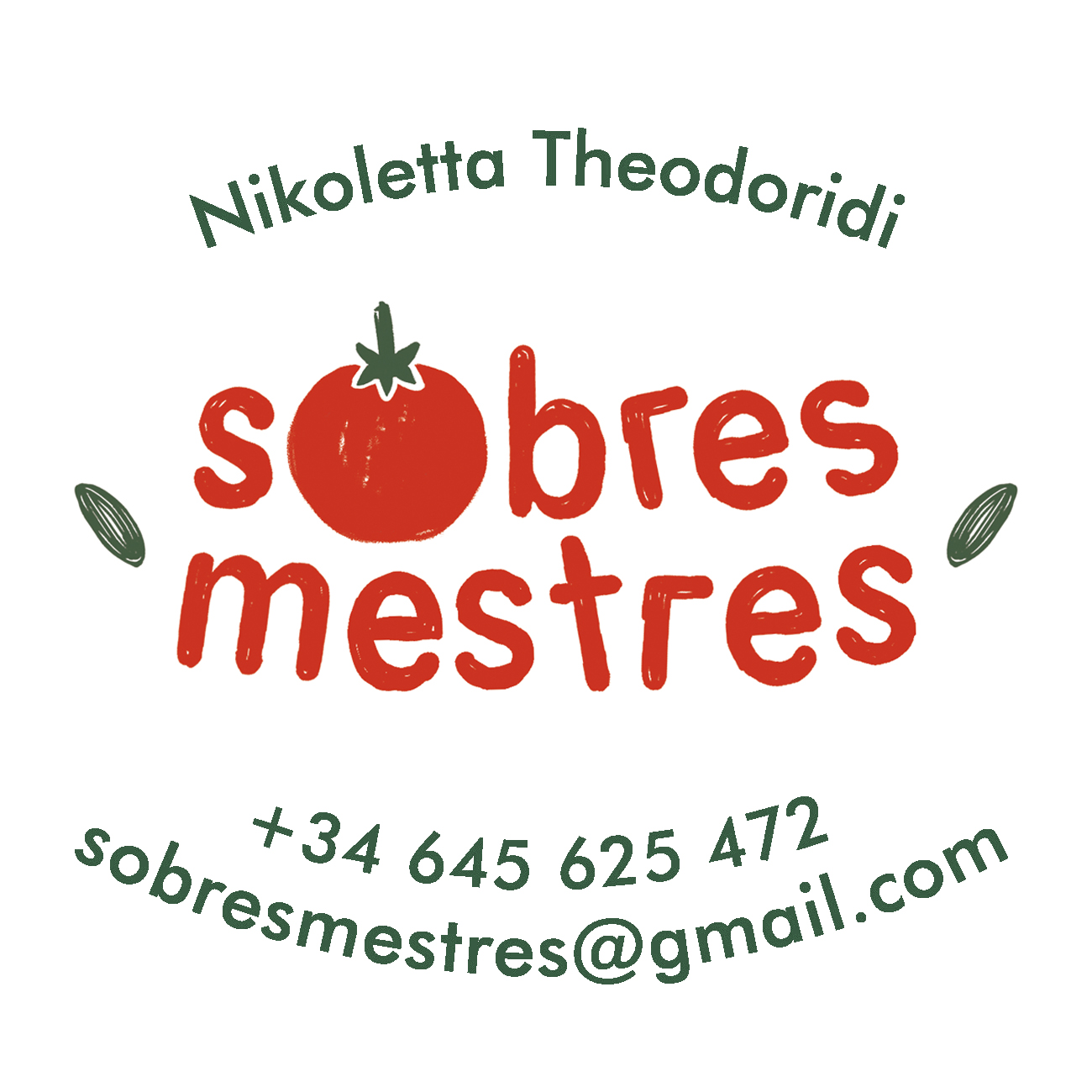Doing it for the pleasure of caring for ourselves and finding a balance, without restrictions or feelings of guilt.
A healthy relationship with food, making the most of seasonal produce and letting creativity into our kitchen, even if it's only for the lunch box we take to work.
We’ll try, using uncomplicated recipes, tastes, aromas and colours. We'll emphasise the importance of colour in our dishes.
Emotions and healthy eating go hand in hand.
Sustainable Food Citizen Week
Video resum de la Setmana Ciutadana de l'Alimentació Sostenible 2021
The activities of the Sustainable Food Citizen Week
Sustainable Food Citizen Week provides an opportunity to understand the relationship between food habits and cross-cutting aspects such as the climate emergency, local economic development, culture, politics, social rights and health. A week dedicated to citizens, in which you will achieve knowledge, reflection and debate about the main issues of the following activities.
Gastronomic heritage
- October 21st - 18.00 HBetevé broadcastingTelevised cooking workshop
- October 22nd - 22.00 H (variable according to betevé programming)Betevé broadcastingDocumentary film season
Documentary on natural wine in Spain. A trip from the north to the south of the country, with the vineyard and wine as the background.
A reflection on natural wine from its producers and opinions from renowned sommeliers.
This activity is part of Betevé's documentary film season, including the films Fermentación espontánea, Taste the waste, Food for change and Il mare piange.So you can combine the documentary with a wine tasting at home, we provide you with a list of wines by order (and time) of appearance.
Minute 01 – Sparkling wine from an ancestral method made in the Alt Empordà. Sparkling wine with unique fermentation.
Minute 05- Red wine from the mountains, made on the north side of the Alpujarra in Granada.
Minute 10 – Mineral and fresh wines made in the Sierra de Gredos (Avila), mainly with Garnacha, also with local white varieties such as Chelva, Albilla Real and Malvar.
Minute 13 – Red wine from the Sierra de l’Albera, in the Alt Empordà, made with Garnacha and Carignan (Lledoner and Samsó).
Minute 16 – White wine with maceration of the skins (orange wine) from Penedès made with Xarello from old vines worked within biodynamic parameters.
Minute 19 – Light red wine made with Sumoll, a native grape of the Penedès. From vineyards surrounded by forests of the Alt Penedès.
Minute 23 - Red wine from Galicia from a heroic viticulture of micro-plots in the Ribera Sacra area.
Minute 27 - White wine from the La Mancha variety and the most planted in the peninsula: Airén, in this case, comes from very old, free standing vineyards.
Minute 31 - Terra Alta red wine, inland Catalonia. From a dry and warm area, with powerful aroma and flavour.
Minute 36 - Wine with Mediterranean expression, made in clay vats in the region of Murcia, from the Tintorera Garnacha grape variety.
Minute 38 - White wine from Montepila grapes from vineyards surrounded by olive trees in Cordoba. - October 29 and 30 from 12.00 to 23.30 H, and October 31 from 12.00 to 22.30 HLa Rambla de Barcelona (between Centre d'Art Santa Mònica and Colom)Market
“Terra i gust” is a gastronomic project that links restaurants with small producers, an initiative from Barcelona City Council and organized by Gastronomia de Proximitat and Slow Food Barcelona, with the support of the Association of Gastronomy and Tourism of Baix Llobregat and l’Hospitalet.
It will be a place for citizens to see the different stakeholders involved in the value chain of local products and sustainability, and to point out the importance of the small artisanal producer, of maintaining traditions and environmentally friendly techniques, highlighting the union with gastronomy.There will be various different spaces:
- Spaces for sustainable gastronomy
- Spaces for beverages, with the participation of the Barcelona Beer Festival, with a selection of craft beers. Natural wines, filtered water, and kombucha will also be served.
- Producers market with seasonal and ecological products.
- There will also be an area for cooking shows, talks and games for kids-
Waste vs Good use
- October 16th - 12.00 HParc de la BarcelonetaTalk
The mission of the NGO Nutrition Without Borders is to contribute to reducing nutrition inequalities throughout the world, in accordance with human rights. They act from the perspective of cooperation, training and empowerment, promoting the balanced use of the world's food resources and solidarity amongst peoples of all nations, in line with the 2030 Sustainable Development Goals.
At Nutrition Without Borders, we are aware of the economic crisis which is affecting some sectors of the population, a factor that increases vulnerability and leads to poverty and social exclusion.
“Sharing food” is an initiative for making the best use of food resources and networking to help prevent food waste and reduce the impact of poverty in the Barcelona Metropolitan Area. The project aims to protect the universal right to food for Barcelona citizens at risk of social exclusion, while also cutting down on food waste and helping reduce the city's ecological footprint to favour the planet. - October 16th - 12.30 HParc de la BarcelonetaWorkshop
What foods are naturally available in each season? How can we maintain a varied, healthy and sustainable diet? This master class guides participants towards sustainable, local and seasonal food. During the session, we will see various strategies for healthy cooking and seasonal food conservation, so we can enjoy them all year round and get the most out of them.
The master class also shares practical ideas for conserving, storing and cooking the food, sharing explanations about the social and environmental importance of our food habits with the audience. Gaining a culture of better food use and providing specific tools for getting the most out of food products. Advice is given on how to eat a complete, balanced diet without dying in the process. Where should we store carrots? What do we do with so many tomatoes? What we can do with summer fruit? If you would like to hear some practical, everyday advice that is fun and visual, don’t miss this class! - October 16th - 17.30 HParc de la BarcelonetaRound table
Relationships of power within the agri-food system and their impact on public policies
For over a decade the loss of food sovereignty has been recognised as a key factor in the impoverishment of the people. This basically affects people living in rural environments, but there is an increasing amount of protest in cities, due to a loss of control and decision-making in terms of what we eat every day.
Due to the situation created by the Covid-19 pandemic, we have become even more aware of the
current food system's inability to respond to the general public's needs, especially in sectors of society with pre-existing inequalities.
All of these conditioning factors of poor diet, together with advertising and labelling, generate health problems in an increasingly large proportion of society.In response to this, alternative initiatives to food banks have arisen in many cities, with a transformative focus on these social inequalities. Likewise, there is a clear need for institutions to include public policies that guarantee access to this human right.
From the perspective provided by food sovereignty, we aim to tackle the capacity and decision-making processes which determine what is produced, where it is produced, how
it is produced and on what scale, as well as how these social inequalities are created.
Urban rurality and biodiversity
- October 16th - 10.00 HJardí dels TarongersWorkshop
What needs to be taken into account when creating and managing your own seed bank at home or in an allotment. How to carry out the natural selection of seeds, how to conserve them and manage them.
Creating a seed bank is an initiative that reinforces food sovereignty. Recovering seeds is an act of empowerment, in order to stop depending on agro-industrial lobbies.
A seed bank helps to recover traditional seeds and increase the biodiversity which is being lost year after year. This is an educational activity to highlight the great work being done by farmers and how this contributes to a healthy, sustainable diet in our homes. - October 16 at 14:30hJardí dels TarongersCulinary experience
A guided meal to discover how cooking based on local produce and edible wild plants is good, fun and also essential. We explain the story behind each of these dishes, how they were made, the characteristics of their ingredients, how the species used were traditionally employed, and their potential in the kitchen (and the countryside) today.
The wild plants are the stars of each dish. We begin by explaining the plants hidden in the wild-plant salad with pine syrup, followed by a tasting session of savoury coca cakes using vegetables of traditional agricultural varieties (pumpkins, spinach, onions, etc.), wild plants (purslane, white goosefoot, sow thistles, etc.) and locally-produced cheese. We will end with a tasting session of sweet coca cakes (carob brownie with wood calamint, almond cake with satureja and apple crumble with lemon verbena), accompanied by a home-made ratafia wine or elder and blackberry syrup for the younger participants.
The meal is suitable for vegetarians.
We hereby inform you that we cannot guarantee that the meals served during this event are free of substances that may cause some type of allergy or food intolerance.
- October 17th - 17.00 HParc de la BarcelonetaShow
Transhumance is the seasonal migration of herds in search of pasture land wherever it may be depending on the time of year: pasture land in the mountains in summer and on the plain in winter.
And so are our shepherds, they lead the flock where the public is gathered to enjoy the street theatre. Shepherds, goats and our dog are the main characters. But maybe you will also end up being a protagonist. Do you know how to milk? And how do you do as a wolf?
Ecological footprint
- October 14th - 19.30 HPlaça de Sant JaumeShow
The start off the week will be a chorus, musical, and participative. Having their say will be the real heroes of sustainable food, those involved in the food cycle: the fishermen, drivers, chefs, farmers, ranchers, market vendors. The speech will be intertwined with the large mechanical orchestra of Cabo San Roque, distributed in the form of a sound mural in front of the City Hall, along with the active participation of the public, in a collective musical creation composed especially for the occasion. A show that highlights all the participants behind the food supply network and gives them a voice.
- Scenography and musical composition: Cabo San Roque
- Stage direction and coordination: Edi Pou
- Idea and concept: Virginia Angulo / Martín Garber
- October 16th - 20.00 HTeatre del CCCB, Jardí dels Tarongers, Plaça del Rei, Parc de la BarcelonetaShow
A unique musical group, the Vegetable Orchestra, plays instruments made from fresh vegetables. The use of various vegetable instruments makes for a unique musical and aesthetic universe. The Vegetable Orchestra covers the most diverse musical styles, combining genres from electronic music to jazz. The newly created instruments determine the resulting sound. A Vegetable Orchestra concert appeals to all five senses.
- October 17th from 10.00 to 11.00 H and from 12.00 to 13.00 HLa Fàbrica del SolVisit / Tour
The building strikes a balance between technology and nature, making it an efficient and sustainable space.
Visit it to learn about the various environmental solutions it utilises, such as renewable energy generation, water conservation, biodiversity conservation and sustainable mobility, as it has earned a “Friend of the Bike” certificate and is the only refurbished building to have a Green Seal, among others.
Proximity
- October 17th - 11.30 HParc de la BarcelonetaTalk
Explanation of the Baix Llobregat Agricultural Park as a metropolitan agricultural area that produces food locally for the Barcelona Metropolitan Area. A public-private entity that aims to preserve the farmland and encourage the development of a professional agriculture that ensures the supply of fruits and vegetables to local markets and the viability of farms. During the talk we will discuss projects like the Parc Agrari farmers markets, the Producte Fresc del Parc Agrari brand, and the creation of a “test” area to encourage young people to get involved in farming.
- October 17th - 12.00 HParc de la BarcelonetaTalk
Ramats de Foc is a prescribed-silvopasture project aimed at boosting the contribution of livestock in fire-risk management through pasture in strategic forest areas.
Prescribed silvopasture is the practice of extensive livestock feeding following established a priori guidelines and goals to achieve a type of fire-resistant forest mass and Ramats de Foc is an initiative to promote this work, and help to extend it through our forests and bring it added value.
The project also aims to promote continuity of livestock activity in the region, through its twofold food and landscaping work, and to strengthen the ties between shepherds and local butchers.
By promoting the consumption of livestock animals that manage our forests, the aim is to encourage a change of perception in society so people understand how a certain kind of regional management will enable protection against the big fires that cause the most damage and that initiatives as simple as consuming local livestock are already helping to maintain fire-adapted landscapes.
- October 17th - 12.30 HParc de la BarcelonetaTalk
Alternatives from the global south to the impact of our unsustainable food system: the case of the Mercado Central del AMBA (Buenos Aires metropolitan area).
The activity, which is aimed at all members of the public, is part of the agreement for implementing the “Barcelona menja bé i just” project.
More week
- October 22nd - 17.30 HCentre Cívic Baró de ViverShow
What is healthy food? What benefits does this type of food have? What are the most beneficial foods for us? We discover the answers to these questions and many others through the main characters of the story told to us by Cia. Routart.
- October 22nd from 18.30 to 20.00 HVideoconferenceOnline
Discovering NEMPERFEINA [Getting down to work]. Jointly creating the jobs needed to change our production and consumer model.
- October 22nd from 19.30 to 21.00 HEspai Consum Responsable
A family activity to learn easy recipes
using recovered fruits and vegetables, which did not make it to the market (due to their appearance, size, or overproduction).
























